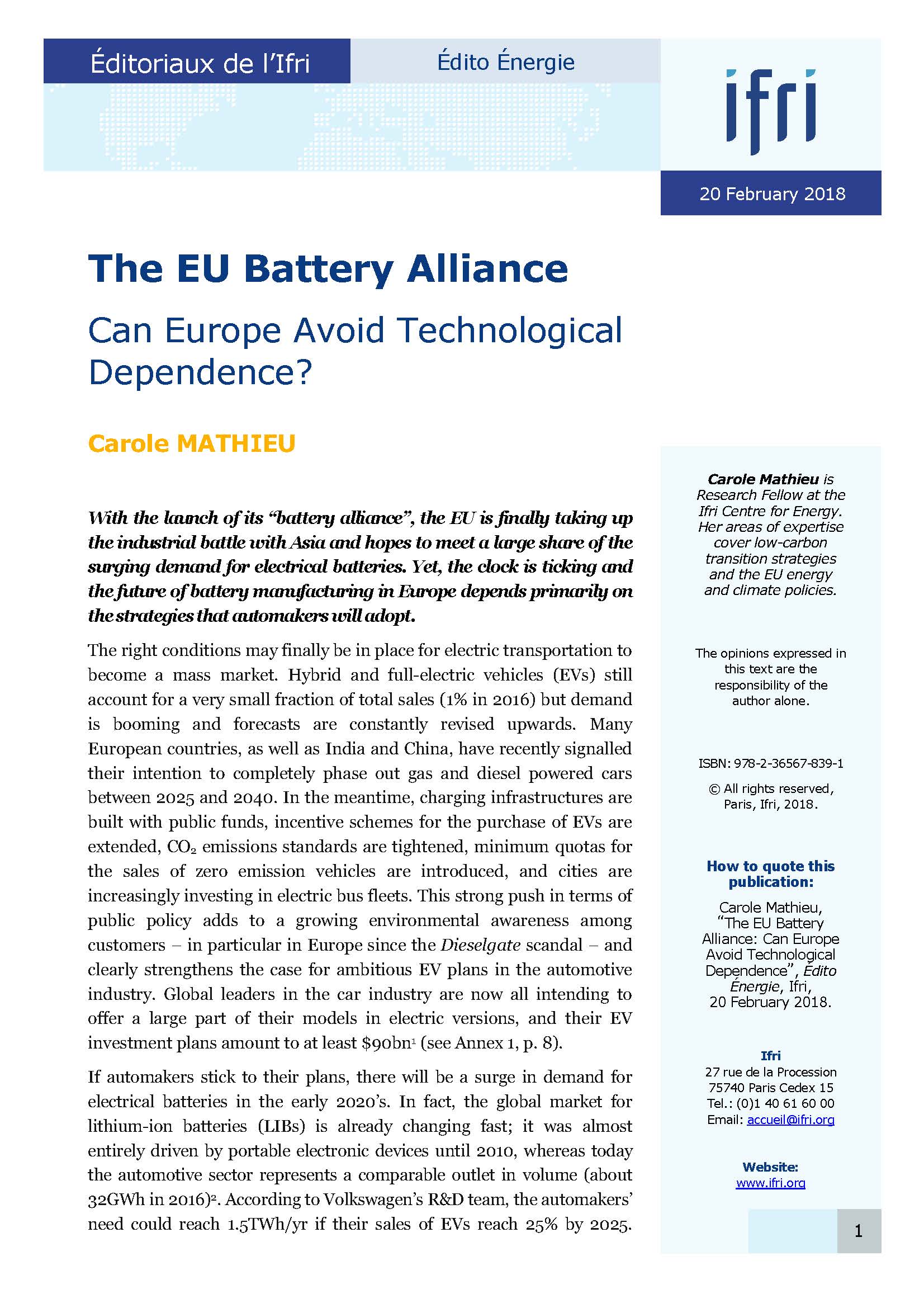The EU Battery Alliance. Can Europe Avoid Technological Dependence?

With the launch of its “battery alliance”, the European Union is finally taking up the industrial battle with Asia and hopes to meet a large share of the surging demand for electrical batteries. Yet, the clock is ticking and the future of battery manufacturing in Europe depends primarily on the strategies that automakers will adopt.
The right conditions may finally be in place for electric transportation to become a mass market. Hybrid and full-electric vehicles (EVs) still account for a very small fraction of total sales (1% in 2016) but demand is booming and forecasts are constantly revised upwards. Many European countries, as well as India and China, have recently signalled their intention to completely phase out gas and diesel powered cars between 2025 and 2040. In the meantime, charging infrastructures are built with public funds, incentive schemes for the purchase of EVs are extended, CO2 emissions standards are tightened, minimum quotas for the sales of zero emission vehicles are introduced, and cities are increasingly investing in electric bus fleets. This strong push in terms of public policy adds to a growing environmental awareness among customers – in particular in Europe since the Dieselgate scandal – and clearly strengthens the case for ambitious EV plans in the automotive industry.
To read the full text, download the document below.

ISBN / ISSN
Share
Download the full analysis
This page contains only a summary of our work. If you would like to have access to all the information from our research on the subject, you can download the full version in PDF format.
The EU Battery Alliance. Can Europe Avoid Technological Dependence?
Related centers and programs
Discover our other research centers and programsFind out more
Discover all our analysesWater in Mexico: an Emergency that Will Wait
Access to water is already and will become increasingly problematic for Mexican economic actors due to the progressive scarcity of the resource resulting from climate change, a geographical distribution that does not coincide with that of the population or economic activity, and management that has so far been far too lax.
AI, Data Centers and Energy Demand: Reassessing and Exploring the Trends
The information and communication technologies sector today accounts for 9% of global electricity consumption, data centers for 1-1.3%, and artificial intelligence (AI) for less than 0.2%. The growing energy demands of cloud services first, and now AI workloads (10% of today’s data centers electricity demand), have exacerbated this trend. In the future, hyperscale data centers will gain shares amongst all kinds of data centers and AI will probably account for around 20% of data centers electricity demand by 2030.
Unlocking India’s Energy Transition: Addressing Grid Flexibility Challenges and Solutions
India is rapidly scaling up its renewable energy (RE) capacity, adding 15–20 GW annually, but the ambitious goal of 500 GW of non-fossil capacity by 2030 is at risk unless the pace accelerates.
Europe’s Black Mass Evasion: From Black Box to Strategic Recycling
EV batteries recycling is a building block for boosting the European Union (EU)’s strategic autonomy in the field of critical raw minerals (CRM) value chains. Yet, recent evolutions in the European EV value chain, marked by cancellations or postponements of projects, are raising the alarm on the prospects of the battery recycling industry in Europe.










